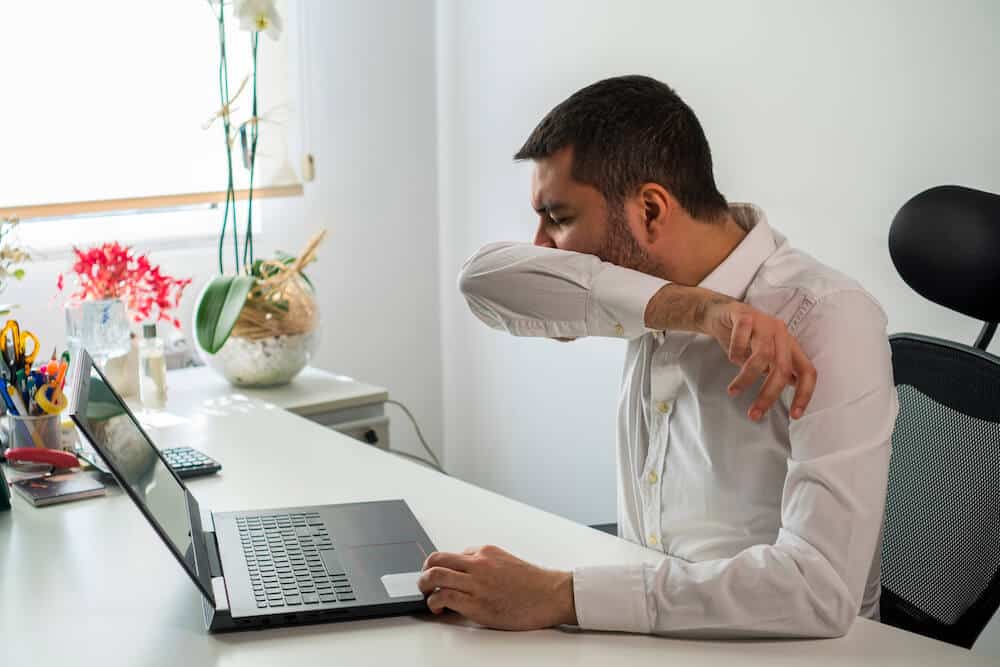With the coronavirus pandemic dragging on for more than five months, there could be long-term mental health effects. A pandemic is stressful so there is a greater risk of anxiety, higher stress loads and worry. Just worrying about the effects of COVID-19 on the world and whether it will be life threatening is only the start of what could cause long-term mental health problems. And those working on the frontline are facing even greater risk with their workloads and way of working changed so dramatically. They face a whole new set of unique issues after working for so long in high stress situations worrying about whether going to work will make them sick.
Then there is the economic instability with millions of jobs lost and businesses closing. The uncertainty of whether you still have stable employment and can continue to pay your bills and keep a roof over your head is a worry. And young people have the added stresses of school, its expectations and an uncertain future. The pandemic has turned the world as we know it completely upside down.
Being stuck in quarantine and self-isolation along with social isolating is not normal for us. We are social beings who thrive on interaction and human touch. While the media talks about ‘unprecedented times’ and the ‘new normal’, it only adds to our stress and fear of what the future will look like.
By recognising, acknowledging and taking action to relieve your mental distress, you can lessen its impact over the long-term.
Potential mental health issues of a pandemic
Understanding the potential health issues a pandemic can cause will help you address them. A Monash University preliminary survey of 15,000 Australians, in the first month of the pandemic, demonstrated high rates of depression and anxiety. A huge 25% of the total surveyed were anxious and depressed. And 10% of people thought they would be better off dead or had thoughts of self-harm. So the pandemic is causing a rise in mental health issues.

Effects of anxiety, worry and stress
It is no real surprise people are feeling anxious, worried and stressed as the pandemic drags on. Everywhere you turn there is nothing but incessant talk of the pandemic, its effects and of the race for a vaccine.
The fear and anxiety about what is going on and the future can be overwhelming. The continual negativity, statistics and effects on communities everywhere can trigger mental health issues. While everyone reacts differently, you or someone you are close to may be feeling the effects. Some of the things you and others may experience include:
- Physically. Aches and pains throughout the body, headaches, an upset stomach, muscle tension, racing heart and rapid breathing.
- Behavioural changes. Turning to alcohol or drugs as a coping mechanism, withdrawing from the things you enjoy, changes in appetite, energy and sleeping patterns.
- Emotionally. Loneliness, irritability, a sense of helplessness, nervousness and feeling sad a lot of the time.
- Thinking. Your thoughts may be out of control thinking about the worst that can happen, that you will lose everything or not be able to cope with that is going on. Or that you may lose someone your love to the virus.
All these are reactions to the stress of a world that has suddenly changed. They activate your survival mechanism but your reactions can be out of proportion and negatively affect your mental health over the long-term. You need to find ways to manage them.
Strategies to help you cope
When you feel anxious, worried and stressed, it is important to have strategies to help you cope. Looking after yourself is a good investment in your wellbeing over the long term. Here are some strategies to help you cope.

Acknowledge how you feel
Some worry or fear at this time is absolutely natural. So acknowledge your feelings as normal and try not to dwell on them. You may be worrying and stressed about:
- You or someone close to you getting sick.
- Being financially impacted.
- Losing your job.
- Putting yourself and your family at risk of the virus if you go out.
Admit how you feel whether it be stressed about the situation, worried or anxious. Admit your feelings to yourself and examine why you feel that way. What is it about the current situation that is making you feel this way? Get it out and know it is okay to have these feelings.
With the ongoing pandemic, these feelings will come and go — let them run their course. Do not let them take over but do not push them away or bottle them up either. You will have good and bad days and this is perfectly normal. But if you feel you may harm yourself, seek help.
Put everything into perspective, avoid consuming too much news
It is good to stay up-to-date with what is happening during the pandemic. But consuming too much news can set off anxiety, fear and confusion. It can also make you feel hopeless and helpless when there are so many conflicting negative stories.
Only get your information from reputable sources. Use government websites and listen to what the medical officials say. Avoid taking too much notice of media reports and scroll on by information on social media — it is often wrong. Set limits on the news you read, watch or listen to. If you become obsessed with information about COVID-19, it will negatively affect your mental health. Know that no news sources will give you the answers and are likely to only bring more bad news.

Change your perception
It is impossible to change the situation when you are affected by a pandemic. But you can change your perception to being in lockdown and needing to self-isolate and social distance.
Your world may never be the same as it was before so accepting change during this time will help you focus on creating a new future. Reframe your negative thoughts about the pandemic and find ways to turn them into positives that change your life in a good way as we move forward.
Identify solutions to your situation, and find practical ways to implement them and to change your life. There is no point looking backwards to a past that no longer exists.

Practice self-care
It is essential to practice self-care at this time. Although you may not really feel like it, looking after yourself mentally and physically will help you cope with what is happening in the world. Some things you can do to look after yourself include:
- Sleeping well. Getting a good night’s sleep is vital to your self-care routine. Make sure your bedroom is conducive to sleeping. Move out the television and leave your mobile phone in another room. Have curtains that block out the light. Do not drink coffee or alcohol too close to going to bed.
- Eat a healthy diet. Your diet can impact your mental health. When you eat a healthy diet it keeps you well physically and your mind alert. Eating good food can help prevent memory loss over the short-term and help you to think clearer. Great foods for healthy eating includes brassicas, nuts, fatty fish, blueberries and leafy green vegetables.
- Add daily exercise. Add daily exercise to your self-care routine. While it is more difficult to get out and about during a pandemic, there are plenty of things you can do. Go for a daily walk and take your dog with you if you have one. Devise an exercise regime to do in the backyard or find a good YouTube video to exercise to in the loungeroom. The added benefit is it will prevent weight piling on while in lockdown or you could lose a few kilos.
- Practice Mindfulness. Mindfulness is about focusing on the moment and accepting what is going on around you without judgement. It benefits your mental and physical health. And your overall wellbeing. You can practice mindfulness using all sorts of techniques such as being kind to yourself and everyone else around you. Practicing mindfulness breathing will help you focus better and calm your thoughts.
- Reorganise your living space. Having an organised living space unclutters your personal space and your mind. You will always feel better when your home is clean. Start with a room at a time. Get rid of the things you no longer use or need. Create a dedicated space for your keys, purse, backpack and wallet so they are easy to find. Even keep a day planner in a convenient place so you know what you need to do each day.

Make sure you schedule time for self-care each day. It is important to plan regular time for yourself or you may always get distracted with other things. You may even have to learn to say no to other things and people to free up your time. Plan a coffee date with a friend, take a long relaxing bath, sit outside with a cup of tea before leaving the house for the day. It will help keep you grounded and chase away the fear, stress and worry that a pandemic can bring.
Stay connected to other people
While you may not be able to visit in person, stay connected with family and friends. Schedule regular Skye or Zoom video catchups and regularly ring each other for a chat. By sharing how you feel with your network, it will help you feel better when you know others feel the same. Listening to how they get through each day can help you cope better.
We are here to help
When anxiety, stress and worry affects you, it may be hard to overcome especially during a pandemic. Dealing with these is tough. Even when you have support, you may feel people do not really understand or it is not enough. And when you are taking medication, sometimes you may need something more. If you are struggling, consider reaching out. When you are not coping, contact us to find out how we aim to help get your life back on track. But, if you reach crisis point, call us immediately. We are here to help support you through a crisis and may be able to help you quickly deal with things better.
We can work with you over the phone, via Skype or in our Spas. Book in today for my Emotional Empowerment Program. I have an introductory offer for just $79 so you may start taking back control of your life. We aim to support you to help you cope with the challenges of going through a pandemic so it does not ruin your life. Our help may alleviate the effects of mental health issues so you look forward to a future filled with happiness and joy.
Let me help alleviate the effects of mental health issues
My Emotional Empowerment Program has helped many people like you deal with all types of mental health challenges for more than a decade. We may help you move through and deal with anxiety when you feel anxious during this time of COVID-19. My aim is to help you replace anxiety, stress and worry with a calm approach to the future in weeks not years. Listen to what Jim has to say about my program after only a few sessions.

